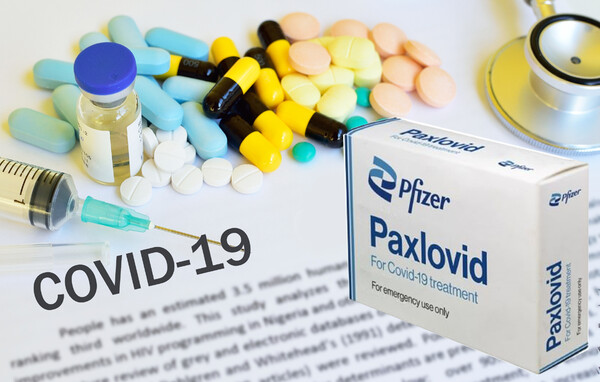The Korea Disease Control and Prevention Agency (KDCA) said it plans to secure additional 260,000 doses of Covid-19 treatments and will begin supplying them starting this week. This move comes as the demand for treatments has surged in recent weeks.

The number of weekly Covid-19 hospitalizations has been steadily increasing since late June, reaching 1,357 in the second week of August, the highest level this year.
This increase in cases has led to a significant rise in the use of Covid-19 treatments. According to the KDCA, the number of treatment doses used jumped from 1,272 in the fourth week of June to approximately 42,000 in the fifth week of July, a 33-fold surge.
"For July and August, we had secured about ten times the amount used in May and June in anticipation of a surge in Covid-19 cases in the summer, but the rapid increase in cases exceeded our expectations, leading to a temporary shortage," said Park Ji-yeong, a senior official at the KDCA, said during a briefing on the current Covid-19 situation and response measures on Friday.
Park stressed that while the KDCA had initially allocated a budget assuming these Covid-19 treatments would be reimbursed, delays in listing the treatments under the insurance plan contributed to the shortage.
"Recognizing the increased use of treatments in recent weeks, we have been in close contact with global pharmaceutical companies to ensure the supply starting this week," Park said. "The KDCA plans to distribute additional treatments, ensuring nationwide availability by the last week of August."
Regarding injectable treatments, the official stressed that the KDCA is processing daily applications and supplies, with the injectable treatments being fully allocated as requested.
"This week, we plan to supply additional doses to major hospitals to ensure they are available where needed," Park said.
Additionally, the agency is preparing to purchase new vaccines effective against the KP.3 variant, which is currently spreading. These vaccinations will begin in October, targeting high-risk groups.
Meanwhile, despite the rise in cases, the KDCA stressed that it does not plan to reintroduce mandatory mask-wearing.
"While we are not making mask-wearing mandatory, we have raised our recommendation for wearing such masks to a 'strong recommendation' level in light of the current increase in Covid-19 cases," Hong Jeong-ik, director of the KDCA's infectious disease policy bureau, said. "Although there are no penalties for not wearing masks, we ask for the public's cooperation."
The KDCA also called on companies and public institutions to establish a supportive culture that allows Covid-19 infected employees to take leave without hesitation.
Hong also mentioned discussions with the Ministry of Education and schools regarding preventive measures and messaging.
"Schools have already been effectively managing respiratory infections like pertussis even before the summer break," Hong said. "We plan to implement specific preventive measures in schools that align with Covid-19 guidelines."
The KDCA's analysis indicates that the severity and fatality rate of the current Covid-19 variant are comparable to previous variants.
According to the KDCA, since the Omicron wave in 2022, the fatality rate for Covid-19 in Korea has remained at approximately 0.1 percent, with the rate for those under 50 years old being less than 0.01 percent, comparable to or lower than that of seasonal influenza.
Related articles
- Covid-19 cases in children surge 179% amid back-to-school concerns
- Korea's Covid-19 treatment shortage highlights dependence on imported drugs
- Resurgence of Covid-19 raises concerns amidst limited government action
- Amid the surge of Covid-19 cases, government says ‘no problems’
- Nearly one-third of Covid-19 vaccines discarded after expiration: lawmaker
- Covid-19 resurgence to push university hospitals without trainee doctors into crisis
- Pfizer notifies Seoul of plans to double Paxlovid's price, threatening Covid-19 treatment efforts
- Seoul to re-mobilize Covid-19 hub hospitals as ER overload intensifies
- Drug regulator sees ‘no problems’ in supply of test kits, cold medicines amid Covid-19 resurge
- North Korea suffers drop in immunization rates across multiple vaccines: WHO
- Sanofi’s quadrivalent flu shot free for vulnerable groups in Korea
- Pfizer's latest Covid vaccine wins nod, 2 Covid treatments get insurance coverage

